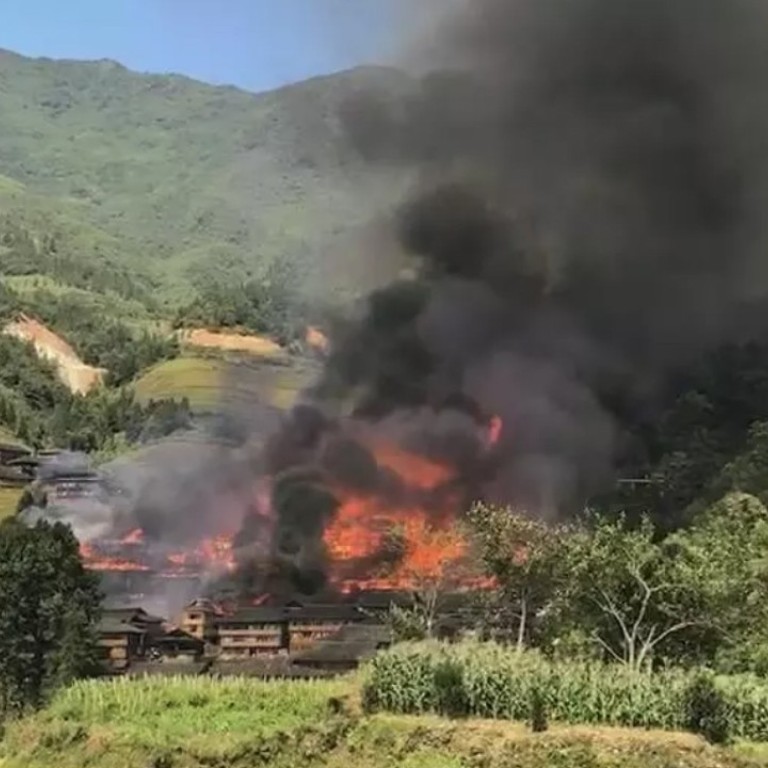
Fire devastates historic wooden village on China’s ‘Dragon’s Backbone’ Longsheng rice terraces
No deaths reported after blaze that reduced many of the houses in Xiaozhai village on the Longsheng rice terraces to ashes
A major tourist attraction in southern China was devastated by a fire on Sunday afternoon but there were no reports of fatalities.
Many of the historic houses in Xiaozhai village on Guangxi’s Longsheng rice terraces were destroyed in the blaze but the authorities said on Monday that terraces were thought to have escaped damage, according to Beijing Youth Daily.
Xiaozhai is one of several villages inhabited by members of the Yao minority who live on the hillsides of the Longji “Dragon’s Backbone” Scenic Area.
Villagers tried to put out the fire but it intensified as the dry autumn winds gusted over the area.
Andy Xiaoshuang, who lives and works in the scenic area, said: “It’s very serious, perhaps 30 houses have burned down but nobody has died.”
“Everything is burning, everything is lost. All the houses have been affected but nobody has been hurt as yet,” a local hotelier, identified only by his surname Pai, told Pear Video.
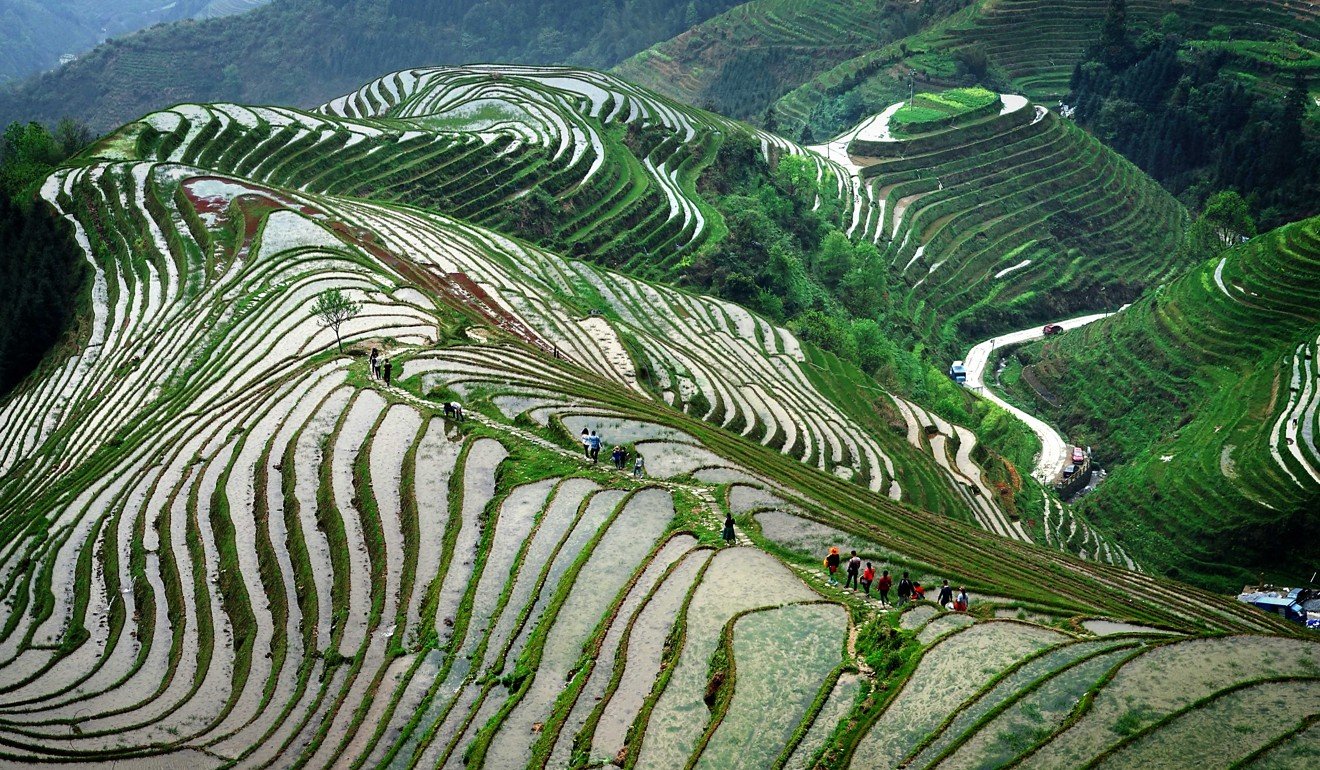
By Sunday night photos of the blaze and its aftermath, showing the village reduced to ashes, were circulating widely on Chinese social media.
Local tour guide Jack Zhou was among those posting images of the devastation on WeChat.
He described Xiaozhai as a “tragic situation” and said the village had been left in “ruins”.
China’s surveillance network moves into the country to catch farmers illegally burning straw
He said the Hope Primary Schoolwas one of the buildings destroyed in the fire.
“Only last week I went to visit Xiaozhai and said hello to the children in front of this school … God is really unfair to the Xiaozhai Yao!” Zhou wrote.
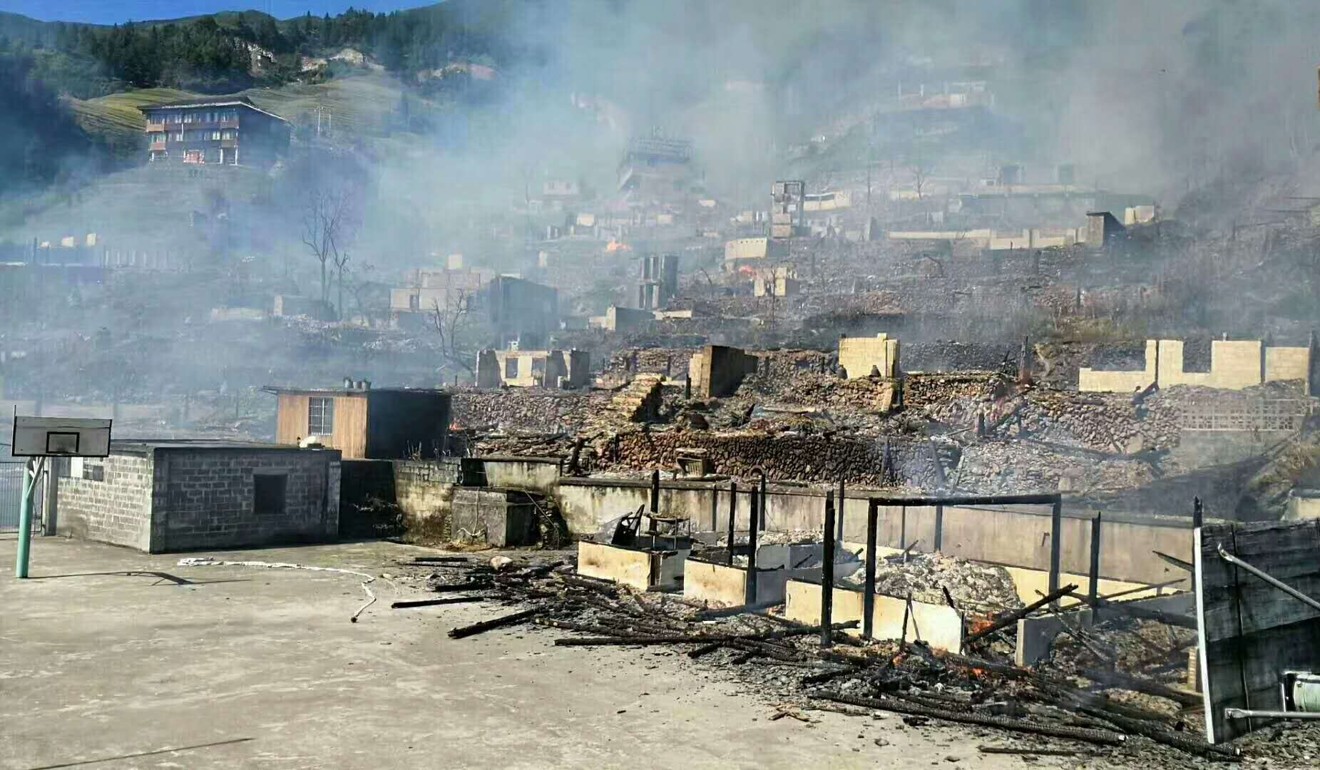
Longsheng’s rice terraces are farmed by members of the Zhuang and Yao ethnic minorities.
Xiaozhai is one of the most remote of the 13 Yao villages in the upland rice terraces, which climb some 800 metres (2,600ft) above sea level.
In the decades since China reformed its economy, isolated and impoverished Longsheng has been popularised by photographers and travellers who were lured by its spectacular mountain views and the “Dragon’s Backbone” rice terraces that have been carved into the mountainside over seven centuries.
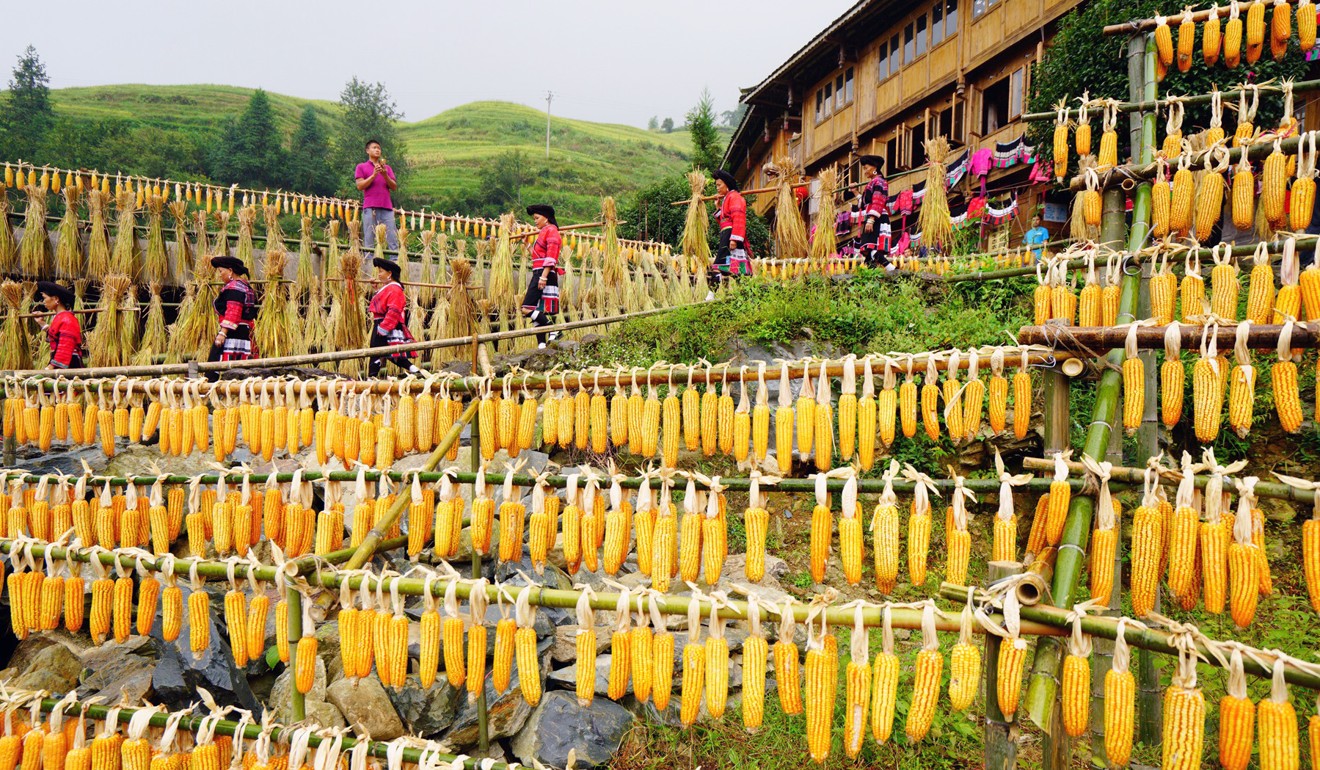
In spring, when the rice paddies fill with water, the terraces look like a cascading mirror, a visual spectacle that has transformed the region into a major tourist draw.
Many upland “Red” Yao villagers, like those in Xiaozhai, have converted their homes into guest houses or opened souvenir shops and restaurants, giving the local economy a big boost.
China’s “golden week”, which began with Monday’s National Day holiday, would have been one of their busiest periods.
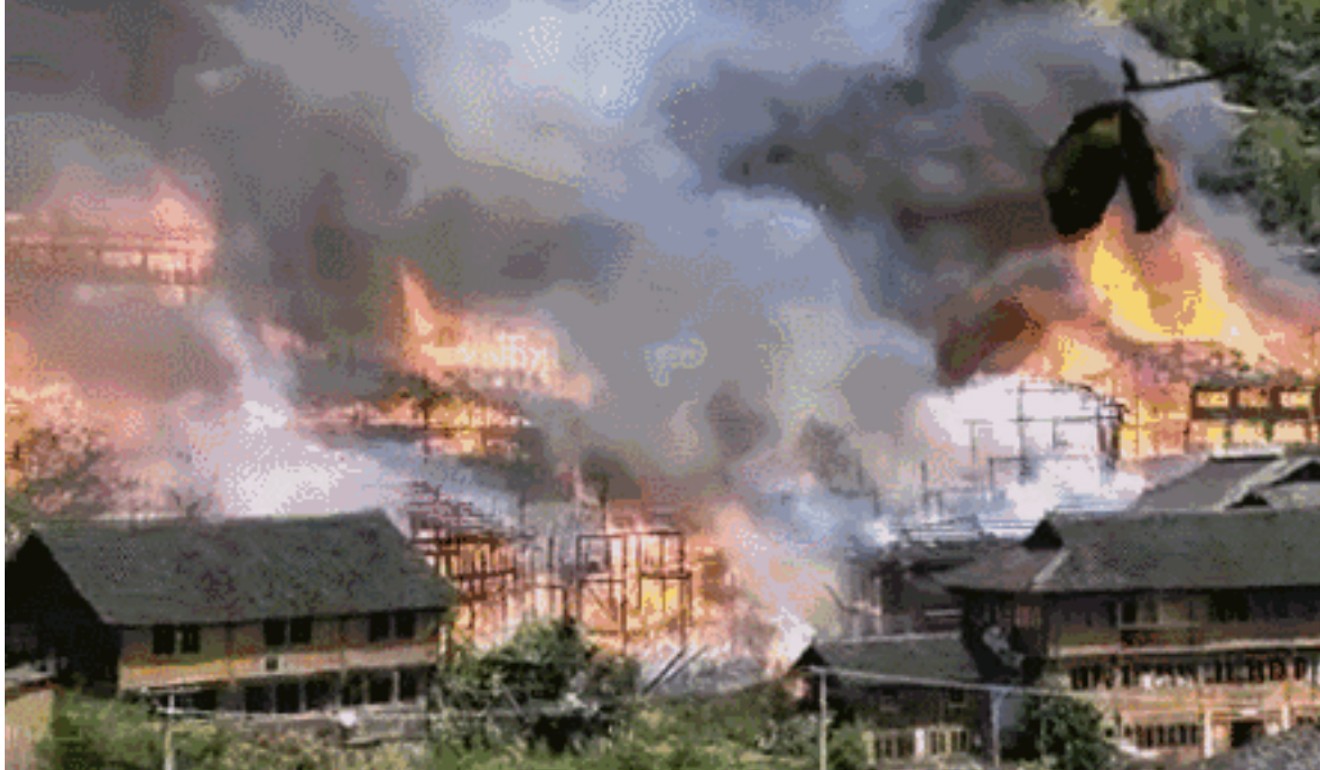
Visitors to the Longji Scenic Area are now charged a 100 yuan (US$14.50) entry fee, although it was not clear how much of that money has been spent on fire safety.
Though some progress has been made in recent years, fire safety standards in China lag far behind those of developed countries.
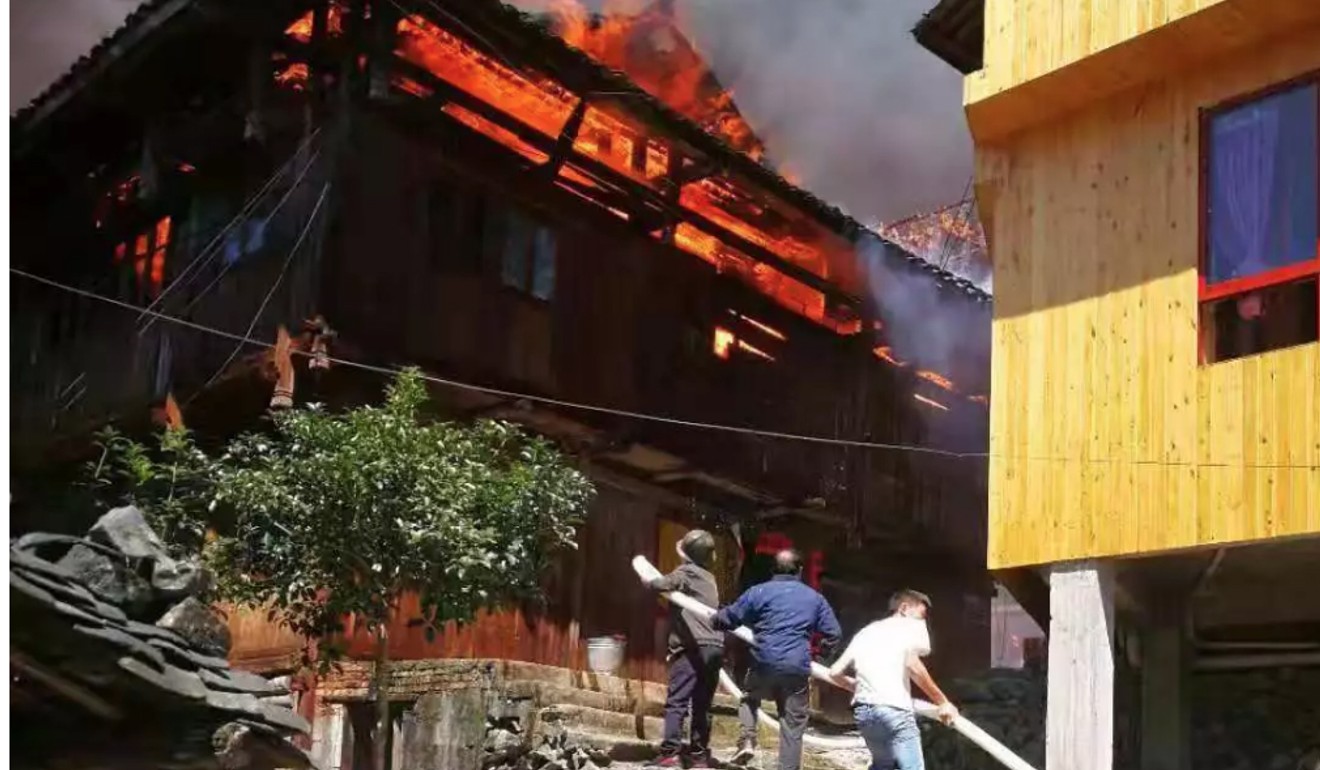
The country has a particularly poor record for tackling fires in remote ethnic minority regions, where many people still build their homes from timber.
Chinese complain as foreigners get free entry to province’s top sites
In January 2014 around half of the buildings in the predominantly Tibetan town of Shangri-La in Yunnan province were razed to the ground.
And in December, three separate fires swept through minority villages in Guizhou province destroying many historic properties.

